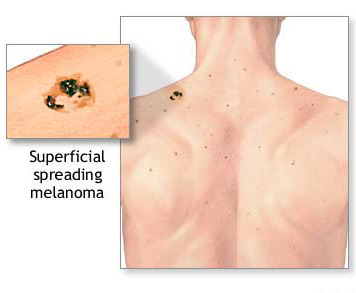Researchers at Saint John's Health Center in Santa Monica near Los Angeles may have discovered why melanoma, the most serious form of skin cancer, so often metastasizes in the small intestine.
According to a study published in the February issue of Clinical Cancer Research, researchers from the health center's John Wayne Cancer Institute identified a receptor protein that appears to be facilitating melanoma's spread to the small intestine. It is uncommon for any other form of cancer to spread to that area.
The study, "Activation of CCR9/CCL25 in Cutaneous Melanoma Mediates Preferential Metastasis to the Small Intestine," found the protein CCR9 in the majority of cases examined of metastatic melanoma from the small intestine, but did not find CCR9 in any cases of metastatic melanoma from other organs.
While certain cancers spread to various organs because of vascular drainage patterns, melanoma forms on the skin and has no direct vascular connection to the small intestine, according to Dave S. B. Hoon, one of the authors of the study.
Instead, CCR9 apparently uses the body's defenses against it.
"The cell homing process involved is a well-developed biological mechanism by which immune and inflammatory white blood cells move to specific sites during infection, inflammation or injury," Hoon said. "The CCR9 receptor is revealed differentially via blood T lymphocytes to the small intestines. During inflammation of the small intestine, CCR9-positive lymphocytes are attracted."
"It appears that melanoma cells have hijacked the biological process of T lymphocytes to travel to the small intestine."
By using treatments that target the CCR9 receptor, Hoon said that doctors may one day be able to halt the spread of melanoma to the small intestine.
(Shanghai Daily February 7, 2008)


